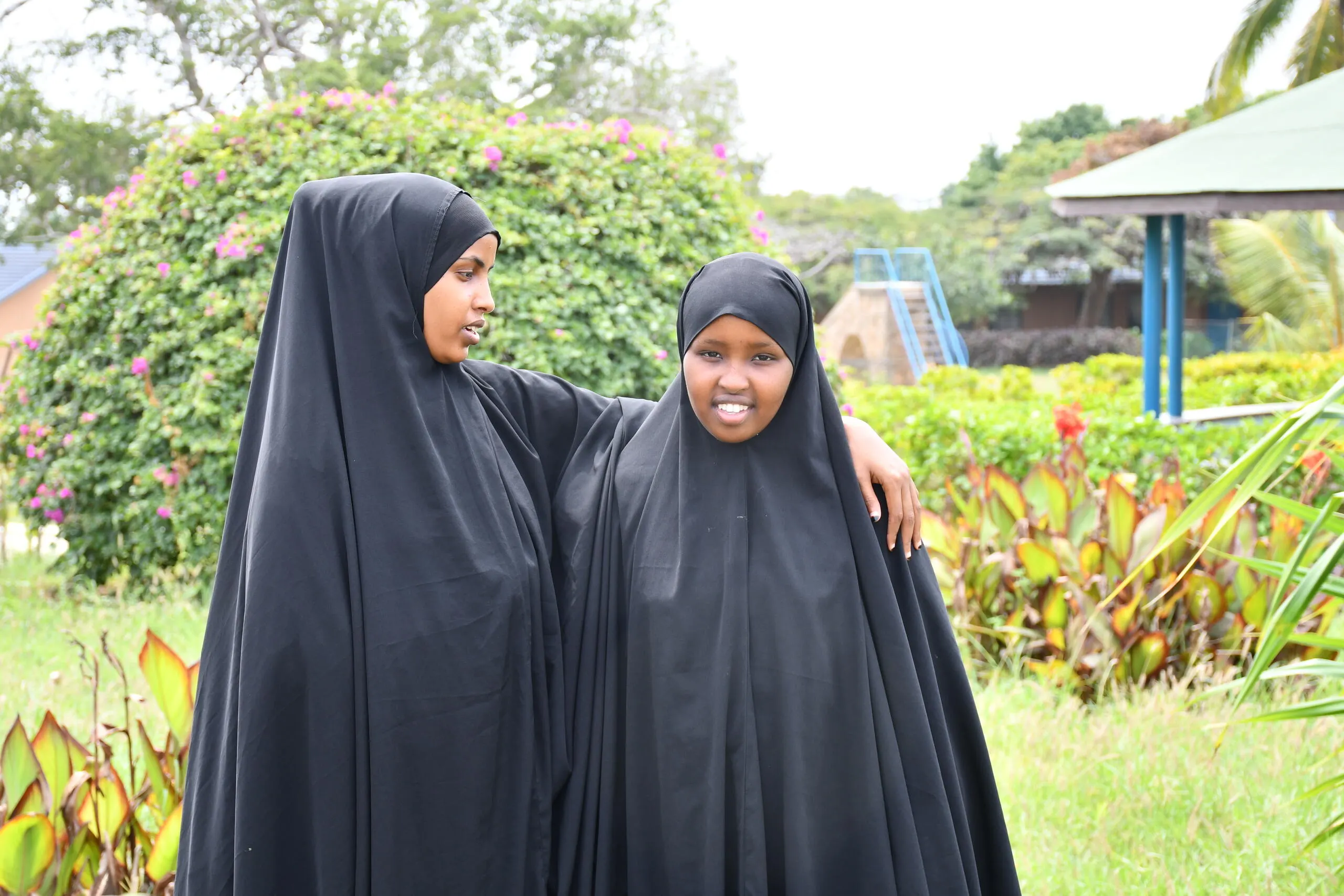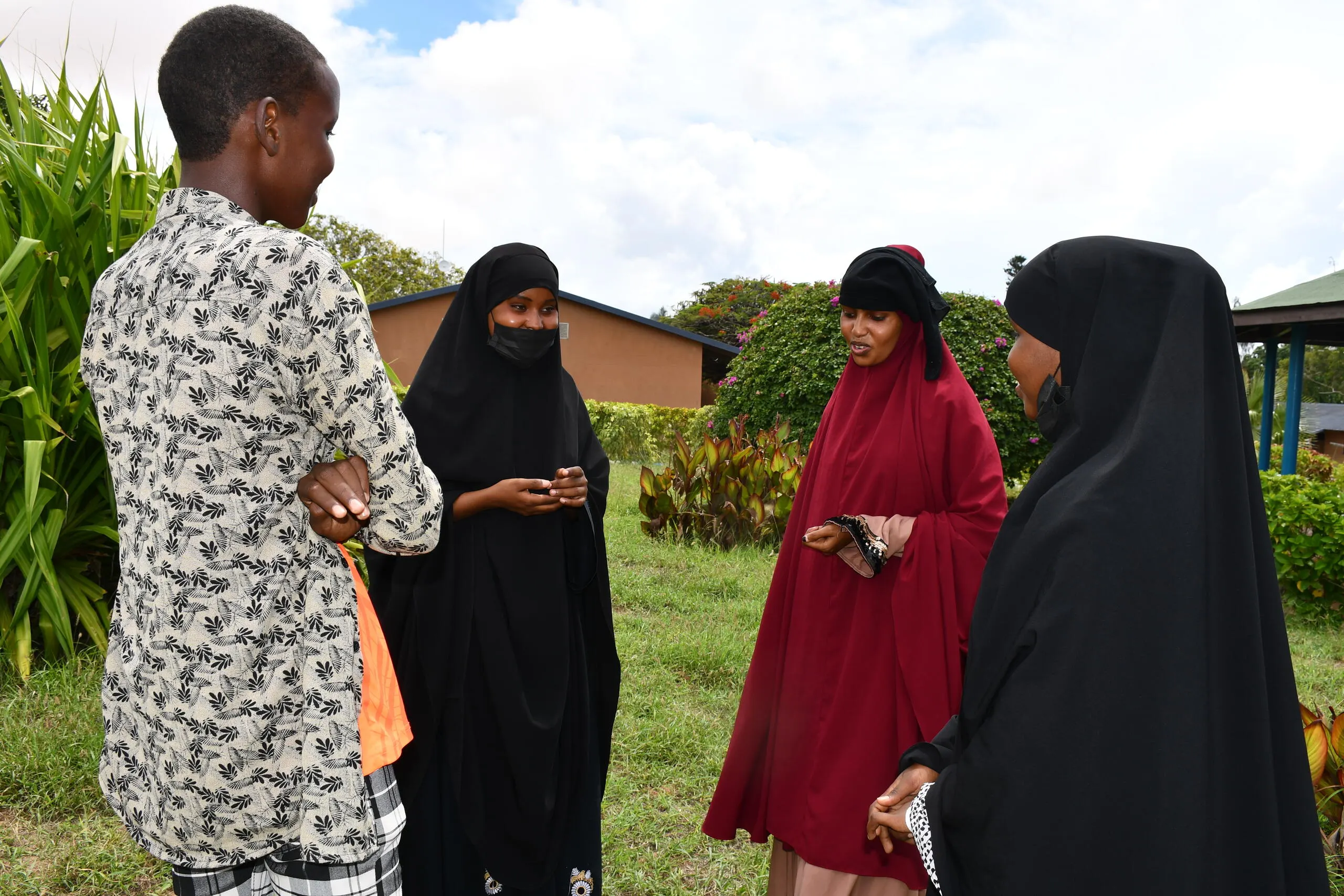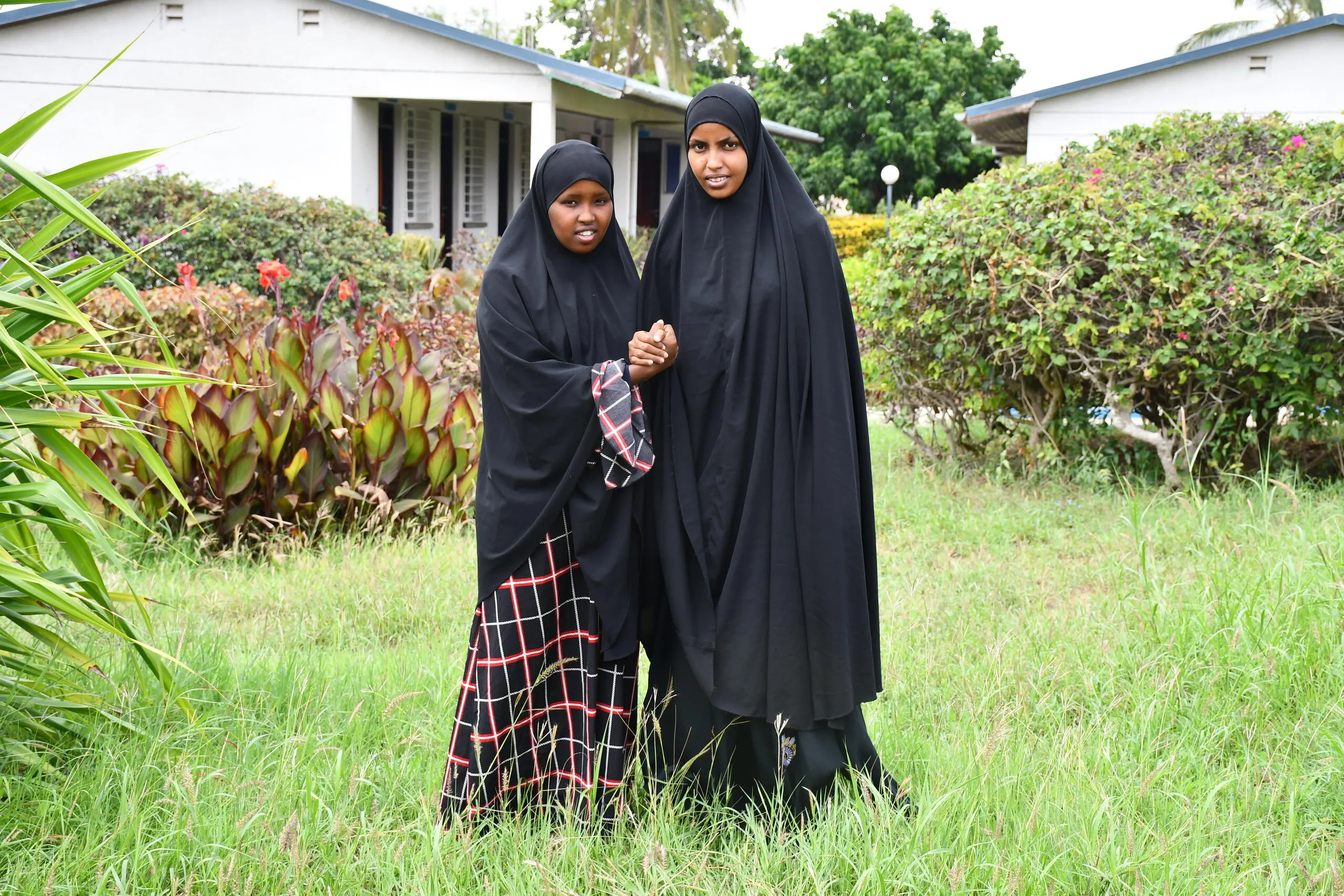Fawzia* was close to her father. When he died suddenly due to a bomb explosion in Mogadishu in 2019, she was shocked and crushed.
With her mother also deceased from a complication in childbirth, Fawzia, 14, and her five siblings, two brothers, 10 and 12 and three sisters, 15, 16, and 21, turned to each other for support and created family rituals to help them cope with their loss.
“When my father died, I couldn’t sleep or eat,” says Fawzia, the youngest of the four girls. “I knew I would never see him again. It was hard for me to accept the reality of it.
“That morning he’d woken us up before dawn to pray. Then he prepared us a nice breakfast because my eldest sister [Sabrina] wasn’t feeling well. After we ate together, he said he wanted to go [to work].
“I walked him to the front door and he told me he would be back soon. I loved him so much.”
Fawzia looked to her eldest sister Sabrina*, for comfort. Feeling hurried to take on the parental role and mourning herself, Sabrina took on the responsibility.
“I shared my feelings with Sabrina and she sat patiently and listened to me,” says Fawzia.
“Her love and respect helped me deal with the sadness. She is very important to me. Sabrina takes care of everyone in the family”.
The night before his death, Sabrina says the family “spent a lot of time together” listening to their father tell funny stories.
“We like to re-tell his stories regularly,” says Sabrina. “We talk about his integrity, his kindness, and his love for storytelling. We’re building our bonds on the strong and loving relationship our father nurtured between us.”

Building bonds after loss
Fawzia and her siblings were born in rural Somalia. And although their parents didn’t have much money, they had a happy childhood.
Their parents kept goats, which they sold for income to meet the needs of the family. The sisters spent a lot of time together taking care of the goats and having fun. The family sold their goats and moved to Mogadishu, Somalia’s capital city, after their mother died.
While poverty, neglect and abuse put children at risk of poor development, numerous scientific studies have shown good bonds at home help young children cope with all kinds of difficult circumstances.
“Another ritual we have is eating dinner together,” says Fawzia.
“[Family dinners] are a time to talk and laugh. We revisit the good memories of our time living in the countryside. The best part is getting to know how everyone is doing.”
Family-like care
With the loss of parental care came the loss of livelihood.
To protect the children, keep the family together, and ensure that their needs were met, SOS Children’s Villages in Somalia began supporting the four youngest children through the family-like care programme, enabling them to stay in Sabrina’s care.
Each child gets school supplies and 30 US dollars as living allowance and 15 US dollars as education fees per month. Halima, 16, got a scholarship.
Kulow Noor, the Child and Youth Development Officer and a narrative therapist at the SOS Children Village has been working with Fawzia and her family, giving them mental health support since they enrolled into the programme in 2019.
Noor says the bond and friendship between the siblings was “never in question.”
“The siblings have faced hard things and survived,” says Noor. “Their strong relationship has fostered their resilience.
“The sense of togetherness as a family and the support they received from their relatives, neighbours and SOS Children’s Villages has contributed to their resilience.”
“What makes me happy is that we’re living together as family,” says Sabrina. “Some relatives wanted to separate us, but I refused.
“I feel proud when I see my siblings together enjoying life.”
Ready to explore the world, with a sense of safety and stability having returned, Fawzia, who’s now in grade seven is making plans for her future.
“I want to become a midwife to assist mothers in the community to deliver babies safely,” says Fawzia. “If my mother had received professional help during childbirth, she would be alive today.
“I do not want other mothers to suffer like she did.”
Sabrina, however, cannot think of her own dreams just yet. She already has her first law degree and had wanted to advance her studies to become a lawyer, but now her siblings “must” come before her future plans.
“I will also not get married until our last born becomes mature and independent,” she says. “I will become a businesswoman in the meantime to give my family good enough care. I want to bring up respectable children with a bright future.”
*Names changed to protect the children’s privacy


